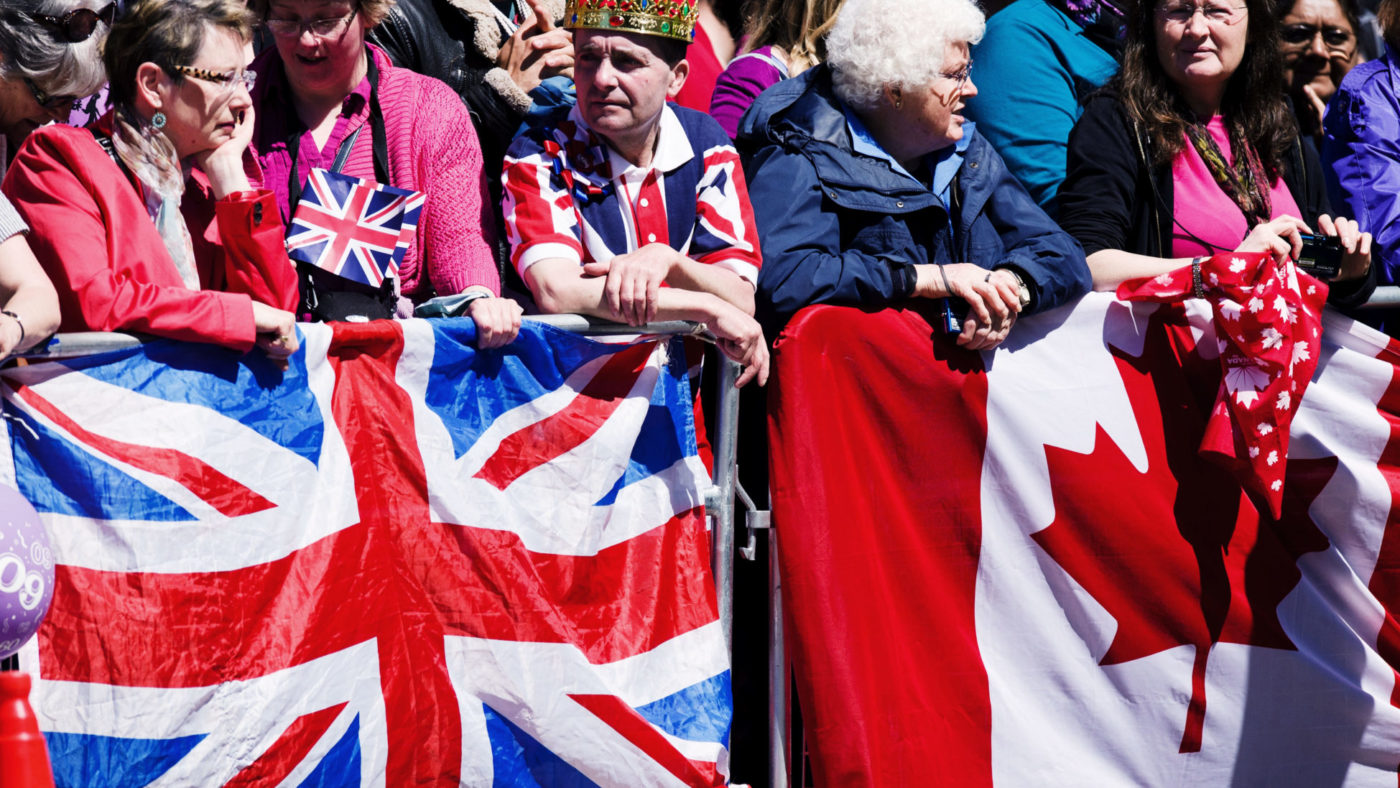Over the weekend, the Canadian Conservative Party held their 2018 Party Convention. The CPC is the official opposition, and currently running neck-and-neck in the polls with Justin Trudeau’s governing Liberal Party ahead of the 2019 General Election.
At the Convention, the Conservatives adopted a number of new policies. Of particular interest for us here in the UK is CANZUK, a proposed geopolitical partnership between Canada, Australia, New Zealand and the UK. The CPC policy commits to the following objectives:
- Free trade in goods/services
- Visa-free labour/leisure mobility for citizens, including retirement relocation
- Reciprocal healthcare agreement modeled on existing AU / NZ / UK bilaterals
- Increased consumer choice/protection for travel
- Security coordination
This passed with 800 votes in favour and just eight against — 99 per cent support. From the motion, we can see that all three of the base elements of the CANZUK proposal are present: a free trade deal; a migration deal; and a security partnership.
CANZUK need not be a left-right political issue, and there are already proposals to put forward a CANZUK motion for a future Liberal Party convention. But the formal adoption of CANZUK, explicitly and in terms by one of Canada’s two main parties is an important and helpful next step for the scheme. It is also important to observe how overwhelming the support for it is.
In New Zealand, the governing Labour-led Coalition Agreement commits the parties to “initiate Closer Commonwealth Economic Relations”. This is a scheme to extend the existing Australia-New Zealand “Closer Economic Relations” trade agreement and the Trans-Tasman Travel Arrangement to include Canada, the UK and perhaps one day also South Africa and India.
These initiatives by major Canadian and New Zealand political parties demonstrate that CANZUK is not some British scheme to try and impose ourselves on unwilling or uninterested former Commonwealth countries. And the fact that the proposals come from a party of the right in Canada and a party of the left in New Zealand indicates that this need not be a partisan issue at all.
Nor is this simply about a trade deal. Indeed, it is not strictly required that there be a single CANZUK trade deal — perhaps the countries might find it easier to do multiple deals reflecting their nuanced needs. It is also not simply a migration deal, although such an arrangement is enormously popular amongst voters in all the CANZUK countries.
People here in the UK see no reason to restrict CANZUK movements, which would be mutual — after all, roughly as many Brits live in Australia alone as in the whole EU27.
But CANZUK is about more than trade or visas: it is a proposal for a new geopolitical partnership. Some trade deals are just about commerce. While we can do a trade deal with China or Brazil without becoming allies with China or Brazil, some deals are the core of a much deeper alliance — like the EEC was for the UK or “Closer Economic Relations” is for Australia and NZ. CANZUK would be such a deep partnership.
It is an obvious partnership built on natural affinities. We are all Common Law countries, under the same monarch, using Westminster parliamentary systems. We are all advocates of international free trade, and liberal humanitarian values. We all have ethnically diverse populations, reflecting our traditions of openness to immigration and cultural exchange.
We are all globally engaged. Working together we could greatly influence international regulatory developments, world politics, trade and security. We already collaborate through forums such as the Five Eyes security partnership, but could do so much more.
We had a deep geopolitical partnership with the EU for several decades. But in leaving the EU, we have chosen to leave that alliance. It would be a grave error to leave the EU formally but attempt to cling on to some vestiges of the underlying alliance. That geopolitical partnership is precisely what we have chosen to leave behind.
We haven’t chosen that because we are certain that some other alliance is available or would be better. We are leaving the EU because it is time to move on and find out what Britain did next. But leaving will create new, profound opportunities only if we let it do so.
That is a key reason we must not adopt Theresa May’s Chequers scheme for Brexit. Not only would it impede our ability to enter into new commercially attractive deals with the US, Japan and others. Not only would it mean the EU setting our laws for us with us having no influence upon them. It would also undermine our ability to enter into new deep geopolitical partnerships.
There are new potential close allies out there for us. They’re calling us, in Canada and New Zealand. Australia can be tempted in as well, if Britain responds. CANZUK is not Britain trying to impose itself on others. It is our new potential geopolitical allies asking to cooperate. If we’re to make the most of the possibilities Brexit creates, we should respond positively.


